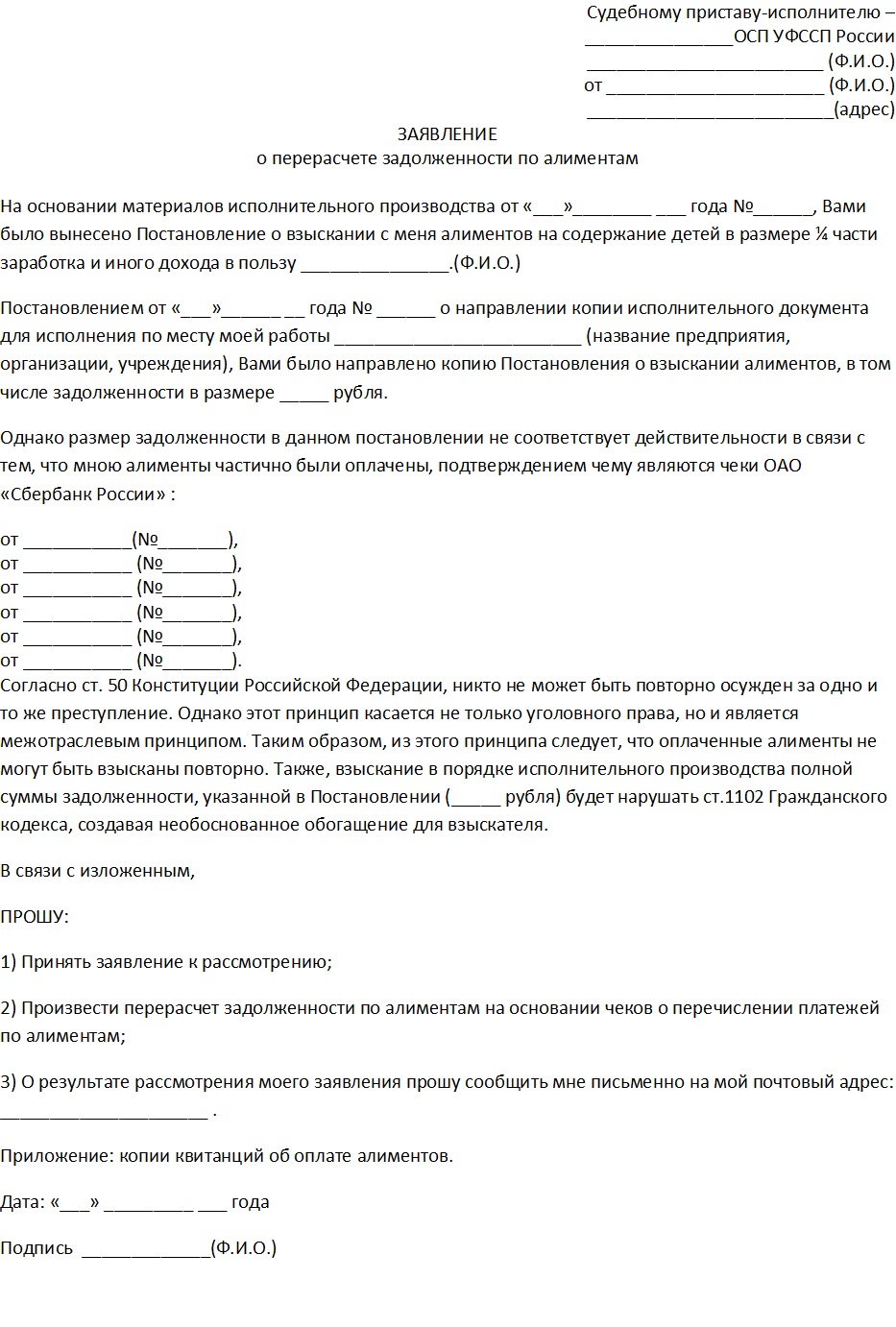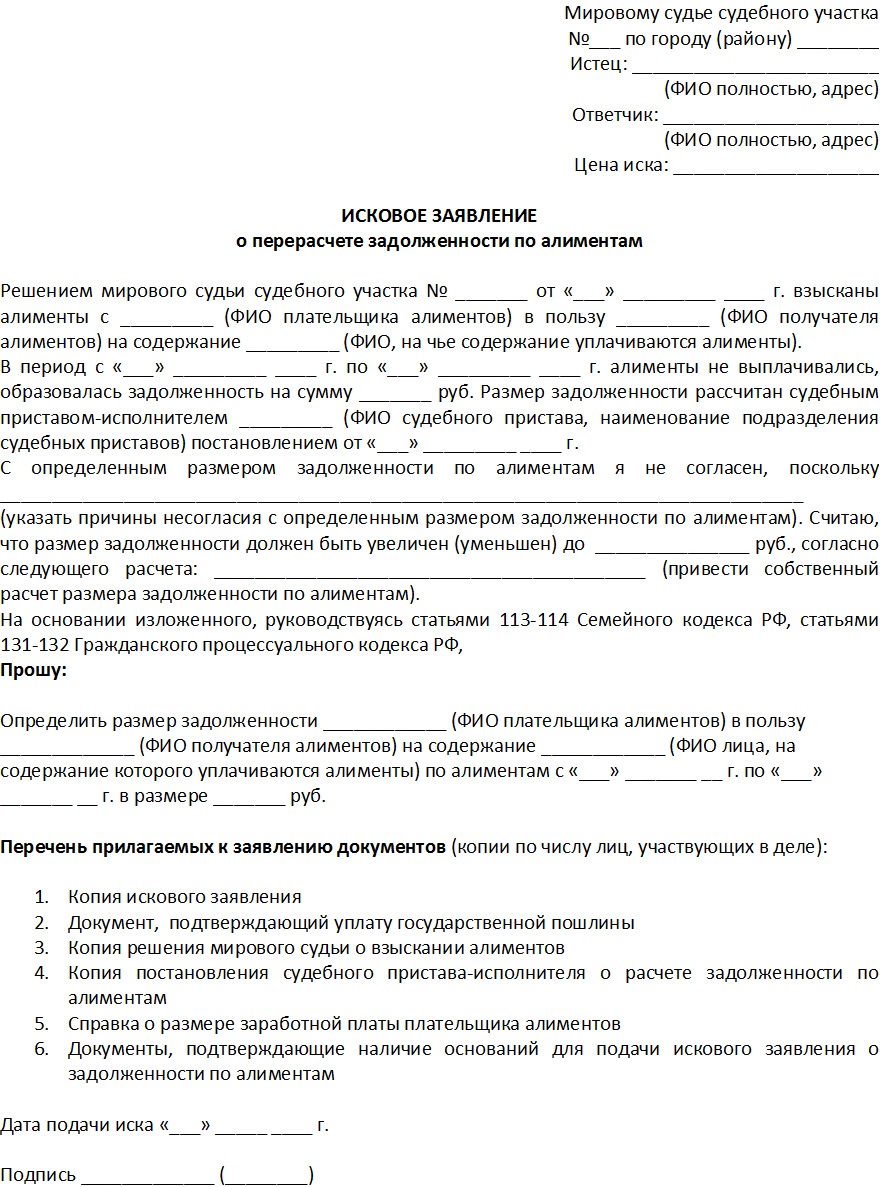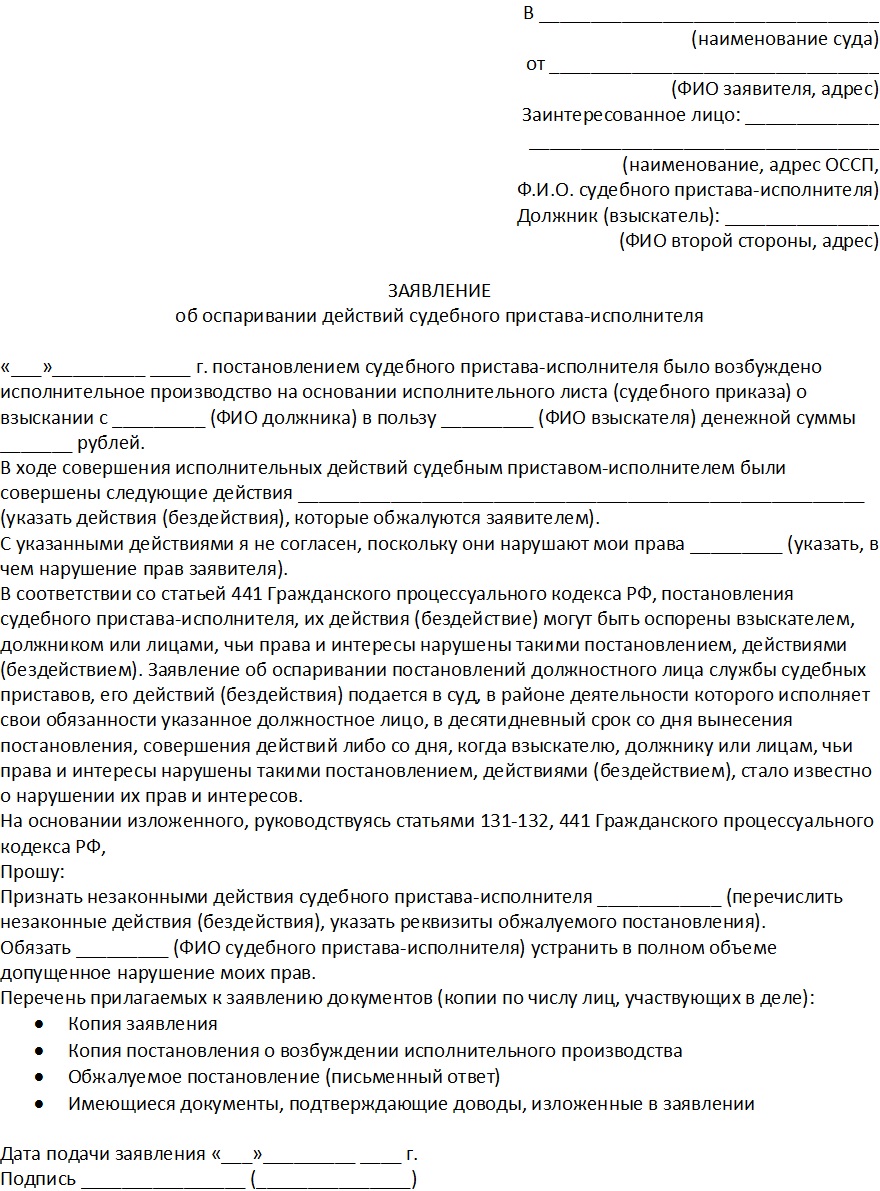Recalculation of alimony for the past period

Alimony disputes arise quite often and are one of the most common grounds for going to court and the bailiff service. Therefore, the law strictly regulates the issue of the payment of alimony, and in case of non-payment for some time, the issue of recalculation, indexation and collection for the debt during this time.
Is it possible to recalculate alimony?
Alimony for the past period can be recalculated in two cases:
- - if enforcement proceedings have already been opened (on the basis of a court order, a court decision or an amicable agreement), and the payer for one reason or another did not fulfill the alimony obligations, as a result of which a debt was formed, it must be calculated by the bailiff and paid by the payer.
- In the trial- if a dispute arises between the parties about the amount of the alimony debt, you can go to court with a statement of claim for debt recalculation.
How to apply for recalculation of alimony?
Let's take a closer look at both methods of recalculating alimony for the past period.
In enforcement proceedings
So, let us consider the case when enforcement proceedings are opened on the basis of a court order, a court decision or a voluntary agreement between the payer and the recipient of the alimony. These documents have the legal force of a writ of execution and serve as the basis for the opening of enforcement proceedings, voluntary or compulsory recovery of alimony with the help of bailiffs.
As a general rule, maintenance payments begin to be paid from the moment specified in a court order or court decision, in a written agreement concluded between the parties. But in some cases - by a court decision - collection can be carried out over the past time (no more than 3 years before going to court with a claim for the recovery of alimony) and the calculation of the amount to be paid over the past period is also calculated by the bailiffs.
If, after the opening of enforcement proceedings, alimony is not paid for one reason or another, a debt is accumulated, which must be periodically recalculated and forcibly collected from the payer.
You don't need to go to court again! The calculation and collection of debts takes place within the framework of enforcement proceedings - this is the work of the bailiff, who is in charge of the case.
Among the duties of the bailiff is to send notifications to the debtor, withhold funds from the official income of the debtor, identify additional sources of income (including unofficial ones), seize property and money savings in bank accounts, impose a fine, bring the debtor to administrative and criminal liability for failure to comply alimony obligations.
In addition, within the framework of enforcement proceedings, the bailiff is obliged to recalculate the alimony debt at a frequency of at least once a quarter, which is formalized by an appropriate resolution.
Unfortunately, due to the workload, the bailiffs do not always effectively fulfill their duties to collect alimony and debts. It is not excluded that errors may arise in the calculation of the debt.
The payer or recipient of alimony payments has the right to apply to the bailiff-executor with an application for recalculation of the debt for the past time.
Application for recalculation of alimony to bailiffs (sample)
So, the recipient or the payer of the alimony has the right to submit an application to the bailiff-executor for the recalculation of the alimony debt.
We invite you to familiarize yourself with the sample application:

![]()
If you have any difficulties in the process of drawing up an application, preparing supporting documents, interacting with bailiffs, apply for a free consultation from the lawyers of our portal! We will help you understand all the legal aspects of enforcement proceedings.
In the trial
According to paragraph 4 of Article 102 of the Federal Law of the Russian Federation "On Enforcement Proceedings", if the amount of the alimony debt calculated by the bailiff violates the interests of the payer or recipient of the alimony payments, the interested party has the right to apply to the court with a statement of claim to determine the amount of the debt (to recalculate the debt) ...

In addition, on the basis of paragraph 5 of Article 113 of the RF IC, a party to enforcement proceedings (payer or recipient of maintenance payments), who does not agree with the actions of the bailiff (for example, regarding the correctness of the calculation), has the right to appeal against these actions in court, provided for by the civil procedural legislation.
According to paragraph 2 of Article 441 of the Code of Civil Procedure of the Russian Federation, a party has the right to file an application to the court challenging the actions or omissions of an official of the SSP (in the context of the topic of this article - on challenging the issued decision on the calculation of the debt for alimony).
For this, a 10-day period is allocated from the day when the interested party became aware of the violation of his interests. The application is submitted to the court at the place of enforcement proceedings.
Below you can familiarize yourself with its form and content:

The term and procedure for challenging the decisions made, including on the calculation of the alimony debt, must be explained to the parties to the enforcement proceedings by the bailiff in accordance with Article 12 of the Federal Law “On Bailiffs”.
Calculation of alimony for the past period by a court decision is assigned to the bailiffs in enforcement proceedings.
How is alimony recalculated for the past period?
The recalculation of alimony for the past time can be carried out in two ways:
- as a percentage of the amount of the alimony payer's earnings
- in a fixed amount of money.
The preferred recalculation method should be indicated in the application. Let us consider in more detail how the recalculation of alimony is carried out in each case.
As a lump sum
Recalculation (regular or extraordinary - at the request of one of the parties) alimony, which is paid in a fixed amount, is called indexation. A change in the size of the subsistence minimum (subsistence minimum) automatically leads to a change in the amount of alimony or alimony payable. Indexation is carried out so that inflationary depreciation of the national currency does not affect the level of material security of the recipient of alimony payments.
For the recalculation, the PM indicator set by the government in the region of residence of the recipient of payments is taken as a basis. If a regional indicator is not established, the indicator of the subsistence minimum for the country is taken as the basis.
You will find more information about the indexation of alimony or alimony debt set in a fixed amount (with examples of recalculation) in the articles "" and "".
Percentage of earnings
Alimony or alimony debt can be recalculated as a percentage of the alimony payer's earnings.
According to article 113 of the RF IC, for this, it is necessary to submit to the BSC (or to the accounting department of the organization that carries out the recalculation) certificates on the amount of wages for the past period.
If during the period to be recalculated, the payer's salary has not increased, although the level of the minimum wage and the average wage in the country has increased, organizations at the place of work are obliged to recalculate earnings, as a result of which the amount of penalties will also increase.
If during the period to be recalculated, the alimony payer did not work, or if he did not submit a certificate of salary, the recalculation is carried out on the basis of the average salary in the country. Information about the size of the average wage is regularly requested by the SSP offices in Rosstat (the Federal State Statistics Body).
Arbitrage practice. Examples of
Example 1
Volkov appealed to the court with a statement challenging the decision of the SSP employee on the calculation of alimony for the past period. In a statement, he pointed out that in violation of the requirements of Article 113 of the RF IC, the bailiff calculated the amount of debt based on the average wage in the country, although they were provided with certificates from the place of work about wages, which are slightly lower than the national average. At the hearing, an employee of the SSP said that the certificates were presented by Volkov after the recalculation. By a court decision, the bailiff's decision to recalculate alimony for the past period was canceled, the court ordered the bailiff to recalculate the amount based on the information contained in the certificates provided by Volkov.
Example 2
For six months, the alimony payer Dmitrov was on unpaid leave, he did not transfer alimony payments. As a result, a debt was formed, which was calculated by the bailiff based on the average wage in the country due to the lack of information on the income of the alimentary payer. Dmitrov went to court with a statement of claim to determine the amount of debt and asked to recalculate the amount of debt in a fixed amount, taking into account his financial situation, since he lives in a remote region of the country, where the level of wages is much lower than the national average, therefore, the debt calculated by the bailiff exceeds the capabilities of the alimony payer ... The court satisfied Dmitov's claim and ordered the bailiff to recalculate the debt for the past period of forced unemployment in a fixed amount.
